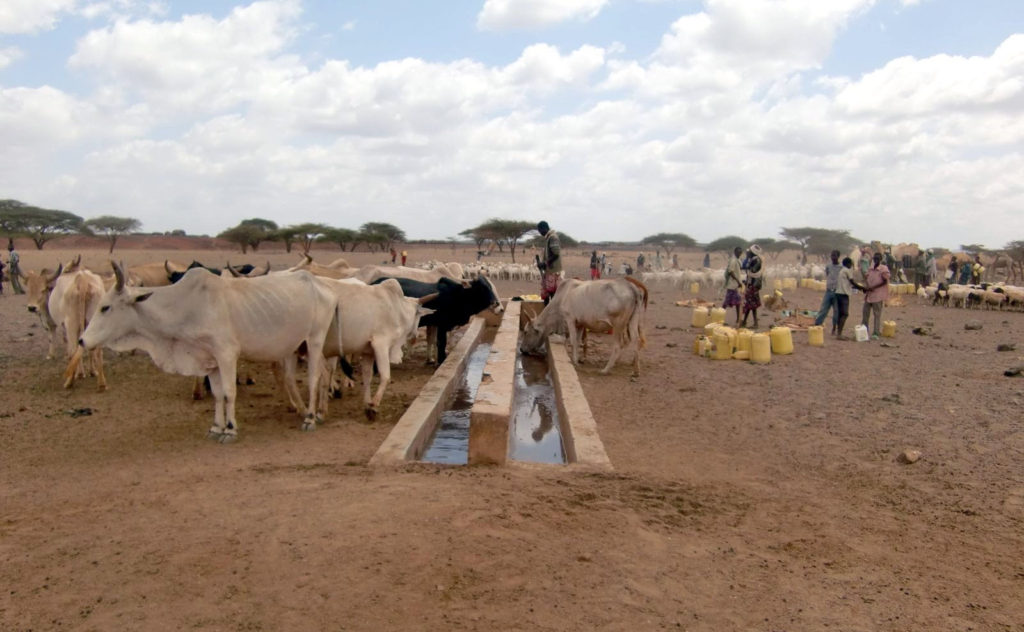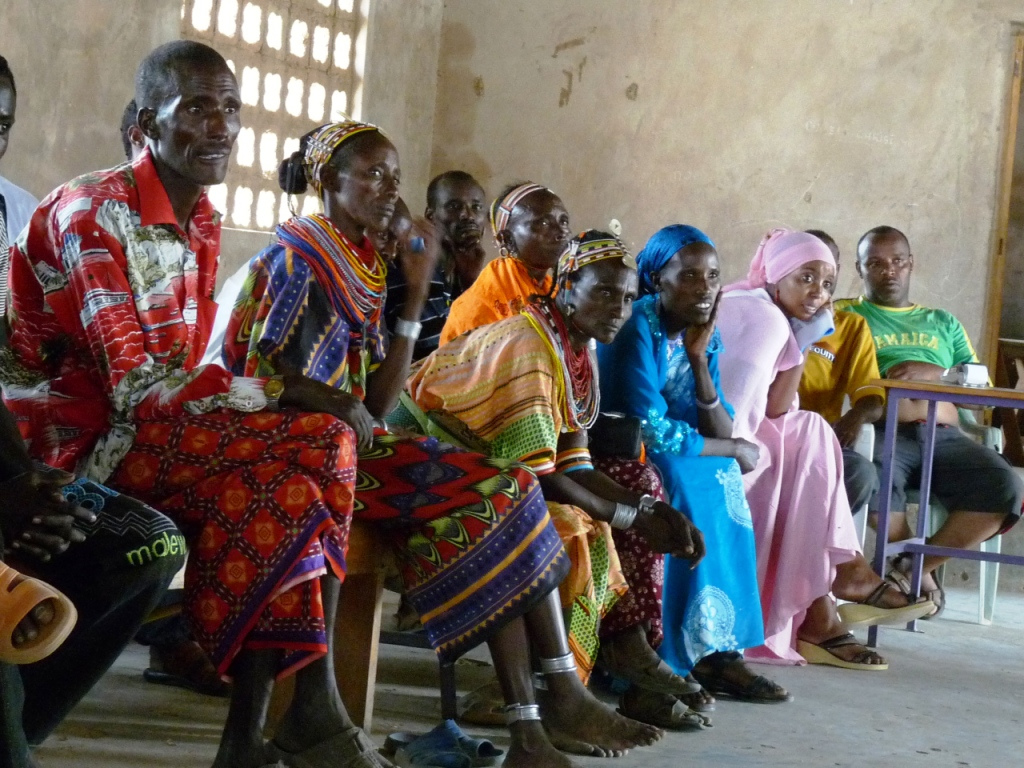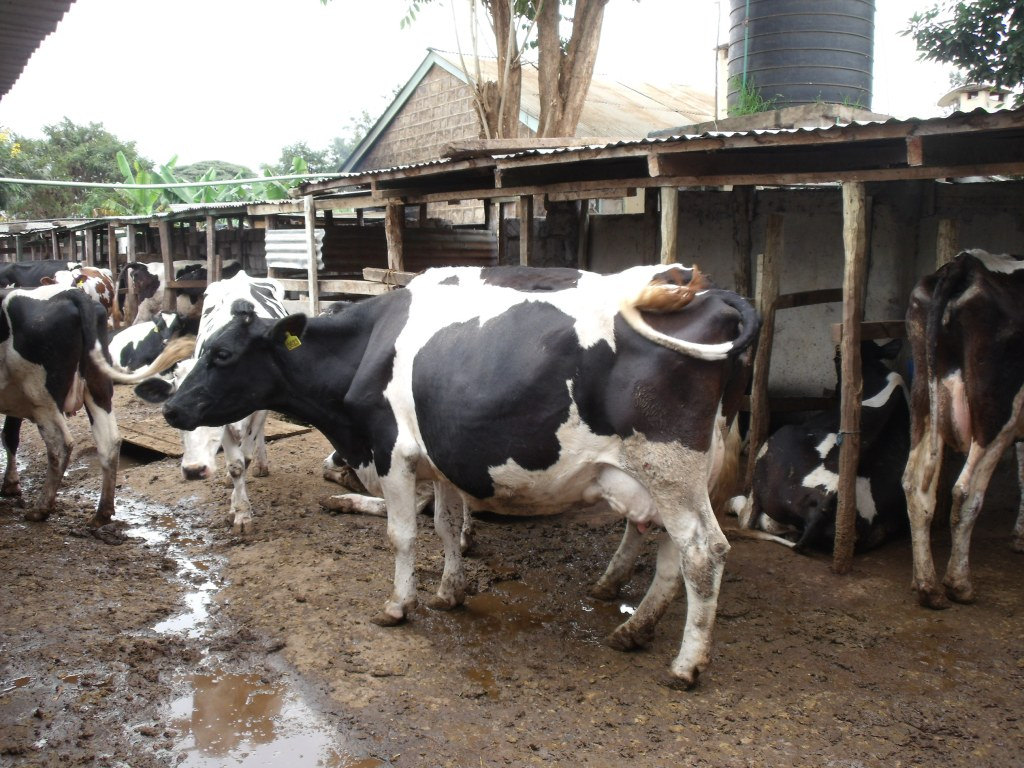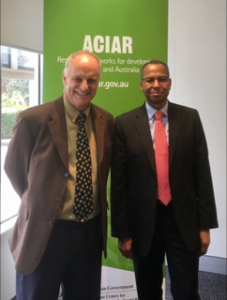

Visitor from the International Livestock Research Institute
April 10, 2017

We recently reported on the Crawford Fund’s support of Mr Kent Nnadozie’s Australian visit—the Secretary of the International Treaty on Plant Genetic Resources for Food and Agriculture highlighted international efforts at conserving plant genetic resources for agricultural productivity, resilience and food security.
This month we are pleased to report on a visit from Dr Jimmy Smith, Director General of the International Livestock Research Institute (ILRI). Dr Smith’s overarching message during his Australian visit was that there is no moral equivalence between those who make bad food choices and consume too much animal-source food, and those many hungry people who, with no food choice at all, consume far too little.

Dr Smith manages ILRI’s research efforts to improve food security and reduce poverty through more sustainable use of livestock. He is in Canberra and Melbourne for public addresses and meetings on the critical role of livestock in global food and nutrition security, and to counter some of the simplistic solutions to sustainability and health suggested for the livestock sector.
“The livestock sector is under pressure from those in rich countries and communities who say that to save our planet we must get rid of livestock, or that to save our health, we must stop eating meat. Some of us probably do consume too much meat as well as sugars, fats and highly processed foods and I have no argument with those advocating not over-consuming such foods. I do argue strongly against those who say that those who eat so little meat should eat even less,” said Dr Smith.

“Livestock contribute not only by ensuring that enough food is produced, but also by helping to balance nutrient consumption and to diversify diets. There is also the income, manure and ploughing that animals provide, which contribute directly to crop production and form part of the income, food and nutritional equation for the poor,” said Dr Smith, who previously led the World Bank’s Global Livestock Portfolio.
“What will help raise livestock productivity by smallholder farmers and herders in low-income countries, while also reducing greenhouse gas emissions and other environmental harms, are today’s many scientific advances in such fields as livestock genetics, breeding, feeding and nutrition. Many of these come from Australia, which shares much of the sub-humid and semi-arid agro-ecologies of the developing nations of the world.”

Dr Smith highlighted that agriculture gets less than 5% of official development assistance (ODA) and of that agricultural ODA, livestock receives a miniscule amount—a share less than 5%—despite the fact that the livestock sub-sector makes up 40% of agricultural GDP in developing countries.

“ILRI and our partners in Australia and around the world believe we must do more to help men, women and young people to grasp opportunities to help meet the rising demand for animal-source foods and to encourage the transition of nearly a billion people from being smallholders to ‘smartholders,’” he concluded.
The Crawford Fund is helping with the media surrounding Dr Smith’s visit, and will continue to provide links as they become available.
- The official press release: Simplistic Health & Environment no Panacea for Poor Livestock Keepers in Transition from Smallhoders to ‘Smartholders’.
- Farm Online National: Simplistic anti-meat mantra hurts third world
- Devex: Q&A: Calls for greater investment of ODA into livestock sectors




